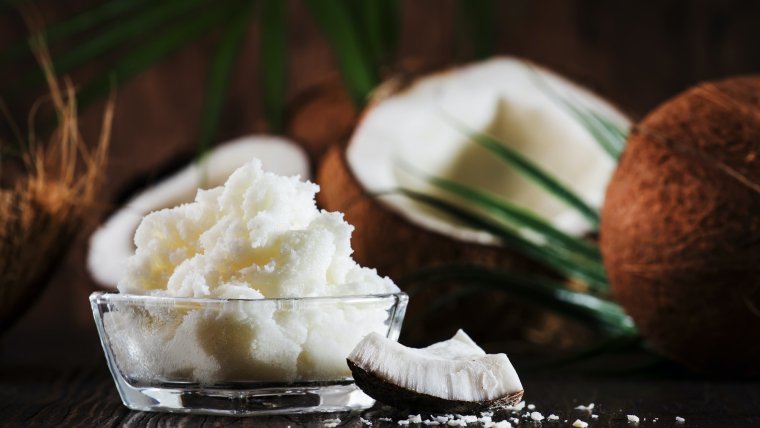As we age, our skin undergoes various changes that can affect its appearance and overall health. These changes are a natural part of the aging process and can be influenced by factors such as genetics, lifestyle choices, and environmental factors. Understanding how our skin changes as we age is crucial in order to properly care for and address any concerns that may arise. In this article, we will explore the different ways in which our skin changes as we age and discuss effective skincare strategies for mature skin.
Understanding the Changes in Your Skin as You Age
As we age, our skin undergoes several changes that can impact its texture, elasticity, and overall appearance. One of the most noticeable changes is a decrease in collagen production, which leads to a loss of firmness and elasticity. This can result in sagging skin and the formation of wrinkles and fine lines.
Additionally, the production of natural oils in the skin decreases, leading to dryness and a dull complexion. The skin also becomes thinner and more fragile, making it more susceptible to damage from external factors such as sun exposure.
Common skin concerns for mature skin include age spots, hyperpigmentation, and uneven skin tone. These can be caused by years of sun exposure, hormonal changes, and the natural aging process.
The Importance of Sun Protection for Mature Skin
Sun damage is one of the primary causes of premature aging in the skin. Exposure to harmful UV rays can lead to the breakdown of collagen and elastin fibers, resulting in wrinkles, fine lines, and sagging skin. It can also cause hyperpigmentation and age spots to develop.
To protect your mature skin from sun damage, it is essential to use sunscreen daily. Look for a broad-spectrum sunscreen with an SPF of 30 or higher and apply it generously to all exposed areas of your body. Reapply every two hours or after swimming or sweating.
In addition to sunscreen, it is also important to seek shade during peak sun hours, wear protective clothing, and use accessories such as hats and sunglasses to shield your skin from the sun’s harmful rays.
Choosing the Right Cleanser for Your Aging Skin
Aging can affect the skin’s ability to retain moisture, leading to dryness and a compromised skin barrier. This can make the skin more prone to irritation and inflammation. Therefore, it is crucial to choose a gentle, hydrating cleanser that will effectively cleanse the skin without stripping away its natural oils.
Look for cleansers that are free of harsh ingredients such as sulfates and alcohol, as these can further dry out the skin. Instead, opt for cleansers that contain moisturizing ingredients such as hyaluronic acid, glycerin, and ceramides.
When cleansing your face, use lukewarm water instead of hot water, as hot water can strip the skin of its natural oils. Gently massage the cleanser onto your skin using circular motions and rinse thoroughly with water. Pat your skin dry with a soft towel instead of rubbing it.
Moisturizing Tips for Women Over 50
As we age, our skin’s moisture levels naturally decrease, leading to dryness and a dull complexion. Therefore, it is crucial to incorporate a moisturizer into your skincare routine to replenish lost moisture and keep your skin hydrated.
When choosing a moisturizer for mature skin, look for products that are rich in emollients and humectants. Emollients such as shea butter and jojoba oil help to soften and smooth the skin, while humectants such as hyaluronic acid and glycerin attract moisture to the skin.
Apply your moisturizer twice daily, once in the morning and once at night, after cleansing your face. Massage it gently into your skin using upward motions until it is fully absorbed. Pay extra attention to areas that are prone to dryness, such as the cheeks and forehead.
How to Combat Fine Lines and Wrinkles

Fine lines and wrinkles are a common concern for mature skin. They are caused by a combination of factors, including the natural aging process, sun damage, and repetitive facial expressions.
To prevent and treat fine lines and wrinkles, it is important to adopt a comprehensive skincare routine that includes targeted anti-aging products. Look for products that contain ingredients such as retinol, peptides, and antioxidants, as these can help to stimulate collagen production, improve skin elasticity, and reduce the appearance of wrinkles.
In addition to using anti-aging products, it is also important to practice good skincare habits. Avoid excessive sun exposure, quit smoking, and maintain a healthy lifestyle that includes a balanced diet and regular exercise. These lifestyle factors can greatly impact the health and appearance of your skin.
The Role of Antioxidants in Your Skincare Routine
Antioxidants play a crucial role in protecting the skin from damage caused by free radicals. Free radicals are unstable molecules that can cause oxidative stress in the skin, leading to premature aging and other skin concerns.
Incorporating antioxidants into your skincare routine can help to neutralize free radicals and protect your skin from damage. Look for skincare products that contain antioxidants such as vitamin C, vitamin E, green tea extract, and resveratrol.
You can also boost your antioxidant intake through your diet by consuming foods that are rich in antioxidants, such as berries, leafy greens, and nuts. Additionally, consider taking a daily antioxidant supplement to further support your skin health.
The Benefits of Exfoliating for Mature Skin
Exfoliation is an important step in any skincare routine, especially for mature skin. It helps to remove dead skin cells from the surface of the skin, revealing a smoother and more radiant complexion.
Exfoliation can also help to improve the absorption of skincare products, allowing them to penetrate deeper into the skin and deliver their active ingredients more effectively. This can enhance the overall effectiveness of your skincare routine.
When choosing an exfoliant for mature skin, opt for gentle options such as chemical exfoliants that contain alpha-hydroxy acids (AHAs) or beta-hydroxy acids (BHAs). These ingredients help to dissolve the bonds between dead skin cells, allowing them to be easily sloughed off.
It is important to note that exfoliation should be done in moderation, as excessive exfoliation can irritate the skin and disrupt its natural barrier. Start by exfoliating once or twice a week and adjust the frequency based on how your skin responds.
How to Address Age Spots and Hyperpigmentation
Age spots and hyperpigmentation are common concerns for mature skin. They are caused by an overproduction of melanin, the pigment that gives color to our skin.
To prevent and treat age spots and hyperpigmentation, it is important to protect your skin from sun damage by using sunscreen daily. Additionally, look for skincare products that contain ingredients such as vitamin C, niacinamide, and kojic acid, as these can help to brighten the skin and reduce the appearance of dark spots.
In-office treatments such as chemical peels, laser therapy, and microdermabrasion can also be effective in addressing age spots and hyperpigmentation. Consult with a qualified dermatologist or skincare professional to determine the best treatment option for your specific concerns.
Nourishing Your Skin from the Inside Out
In addition to a comprehensive skincare routine, nourishing your skin from the inside out is crucial for maintaining its health and appearance. The foods we eat and our lifestyle choices can greatly impact our skin’s overall health.
A diet rich in fruits, vegetables, whole grains, and lean proteins can provide the essential nutrients and antioxidants that our skin needs to stay healthy. Additionally, staying hydrated by drinking plenty of water can help to keep your skin moisturized and plump.
Avoiding excessive alcohol consumption, smoking, and stress can also contribute to better skin health. These lifestyle factors can dehydrate the skin, accelerate the aging process, and contribute to the development of skin concerns.
Treating Your Skin to Professional Treatments and Procedures
While a consistent at-home skincare routine is essential for maintaining healthy skin, there are certain professional treatments and procedures that can provide additional benefits for mature skin.
Some popular treatments for aging skin include chemical peels, microdermabrasion, laser therapy, and dermal fillers. These treatments can help to improve skin texture, reduce the appearance of wrinkles and fine lines, and promote collagen production.
When considering professional treatments, it is important to choose a qualified provider who has experience in treating mature skin. Schedule a consultation to discuss your concerns and goals, and ask for before-and-after photos of previous patients to ensure that you are making an informed decision.
As we age, it is important to prioritize skincare in order to maintain the health and appearance of our skin. Understanding the changes that occur in our skin as we age and implementing effective skincare strategies can help to address common concerns such as wrinkles, dryness, and hyperpigmentation.
By protecting our skin from sun damage, choosing the right cleanser and moisturizer, incorporating antioxidants into our routine, exfoliating regularly, addressing age spots and hyperpigmentation, nourishing our skin from the inside out, and considering professional treatments when necessary, we can achieve healthy and radiant skin at any age. Remember to consult with a skincare professional or dermatologist for personalized advice based on your specific concerns and goals.
If you’re looking for skin care tips specifically tailored for those over 50, check out this informative article on “Chic Comfort: Revolutionizing Everyday Wear.” While it may not seem directly related to skin care, the article explores the importance of comfortable clothing choices and how they can positively impact your overall well-being, including your skin. It discusses the benefits of choosing breathable fabrics and avoiding tight or restrictive clothing that can cause irritation or inflammation. So, if you want to take care of your skin after 50, start by prioritizing comfort in your wardrobe. Read more




